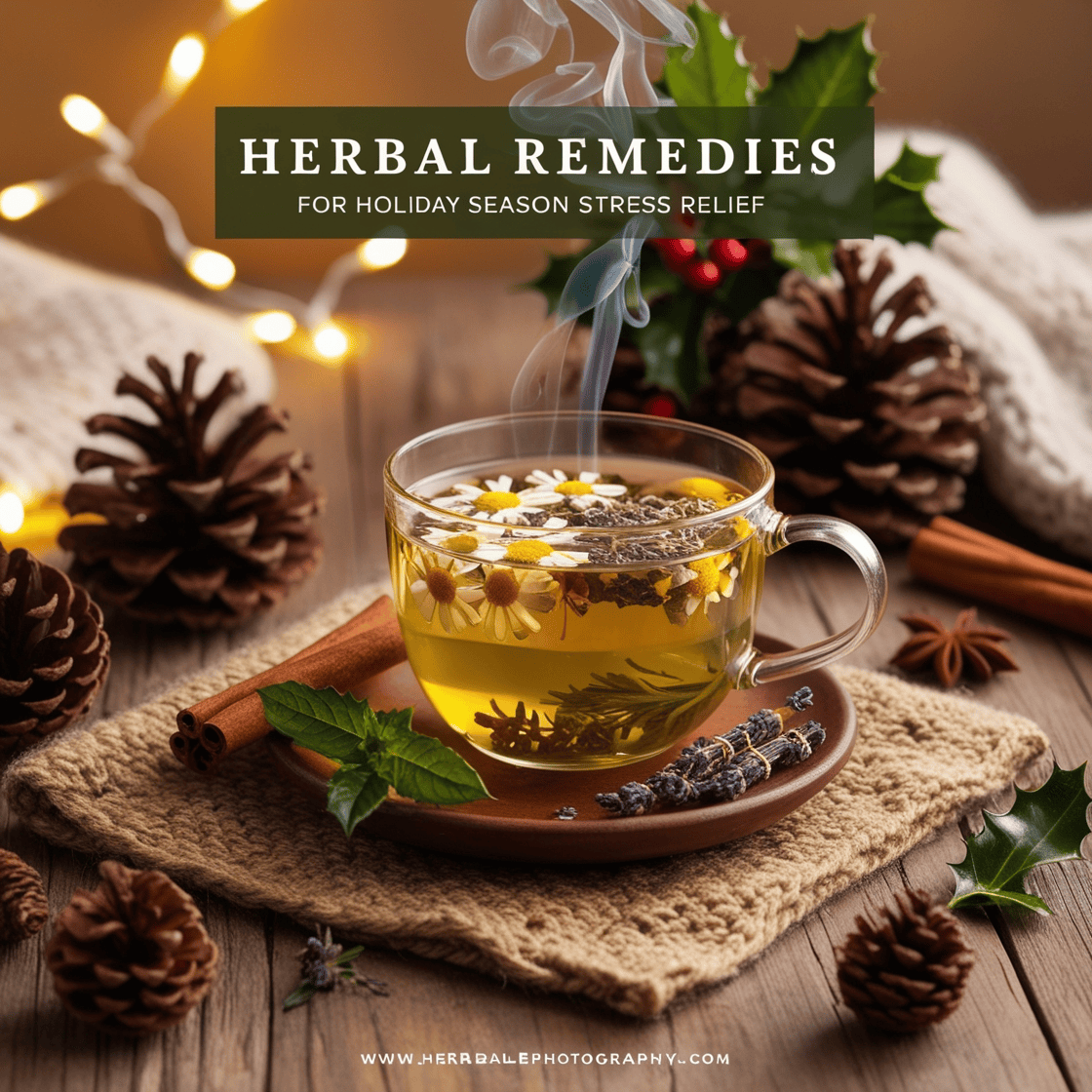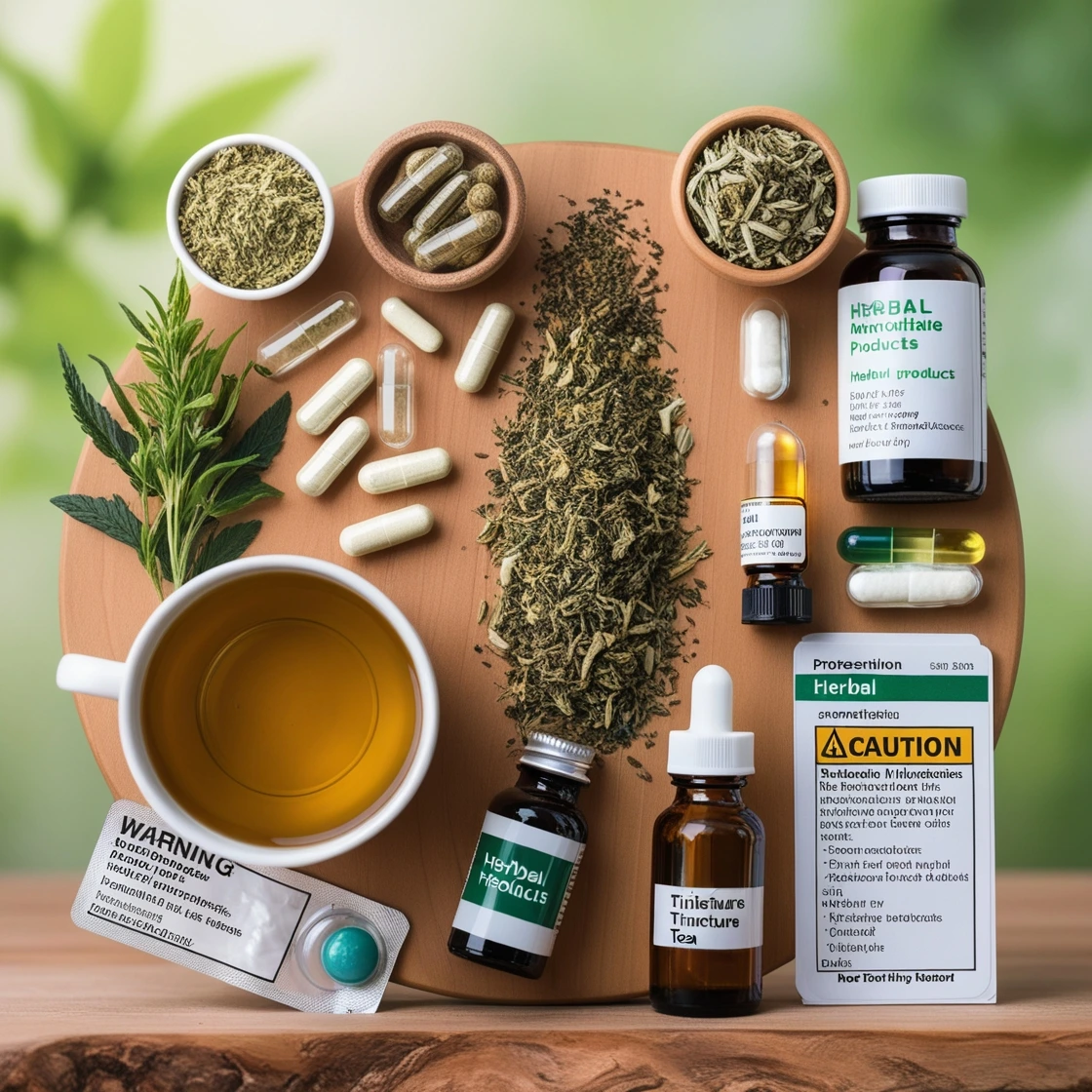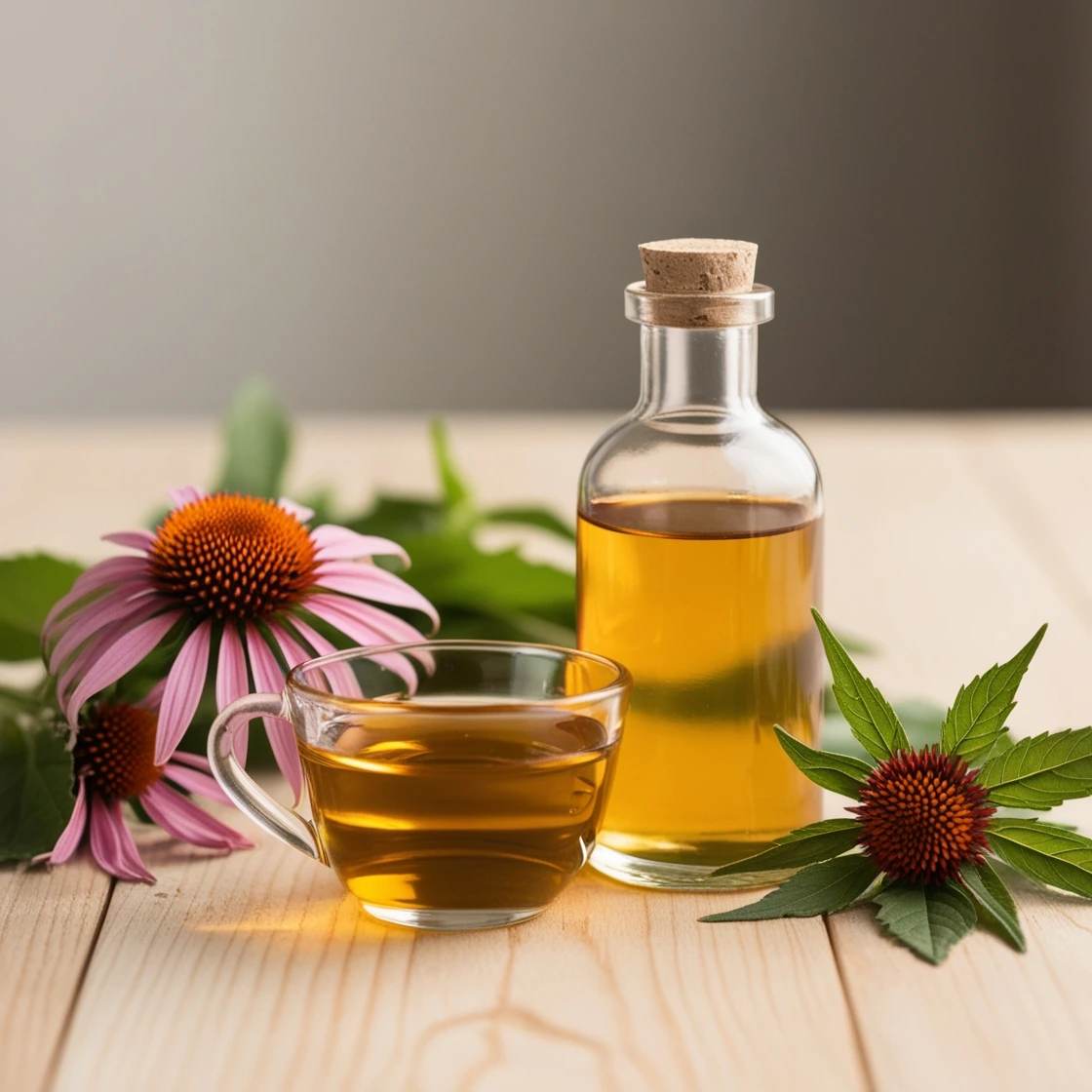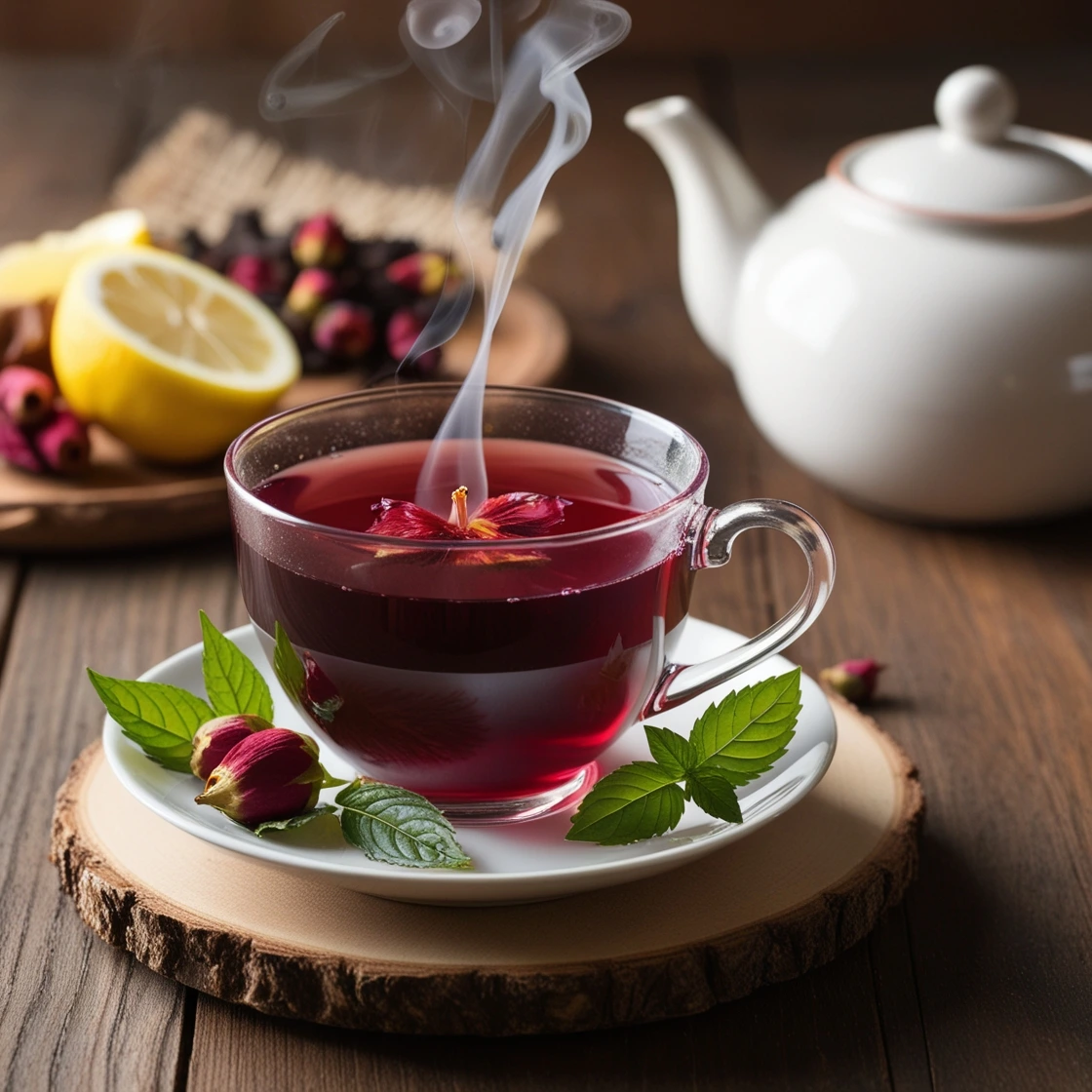With the allergy season merely two months away only two words are perhaps coming to your mind “not again!” The thought of dealing with seasonal allergies, pollen allergies, and sinus infections must be driving you crazy. Nasal congestion, a runny nose, and a stuffy nose can make your life even more miserable. You can simply sip your way to relief by choosing herbal remedies like herbal teas as a natural way to ease the symptoms of allergies. Here we will explore in detail the topic of herbal teas for allergies and sinus relief, how they work, and how you can use them to manage common allergy symptoms like nasal congestion and sore throat.
Research shows certain herbal teas are effective in relieving the symptoms of allergies due to their anti-inflammatory properties, antioxidant properties, and ability to ease the body’s immune response.
We will also explore the active ingredients of these teas and how they can act as natural antihistamines to bring down the release of histamines—the compounds responsible for many of the symptoms associated with allergic reactions.
From peppermint tea to ginger tea, there’s a tea for everyone looking for allergy relief during allergy season.
1. Peppermint Tea: A Soothing Solution for Nasal Congestion
Peppermint tea can be your go to herbal remedy if you are suffering from nasal congestion. It is well known for its anti-inflammatory properties which are effective in opening up nasal passages and soothe nasal inflammation making it a great natural solution for those suffering from allergic rhinitis, where nasal congestion and a runny nose are common symptoms.
Peppermint tea, one of the top herbal teas for allergies and sinus relief , has menthol that functions as a natural decongestant, easing the stuffy nose associated with allergic reactions and making you breathe easier.
Apart from its decongestant benefits, peppermint tea can also provide you relief from sore throat resulting from constant post-nasal drip, a common occurrence when dealing with seasonal allergies.
Moreover, peppermint tea has antimicrobial properties that fight off pathogens which result into secondary infections like a sinus infection. This becomes crucial during allergy season when your immune system may come under attack from environmental allergens.
Peppermint tea is also a natural remedy when it comes to headaches that often come along with nasal congestion. Menthol’s cooling sensation provides relief from alleviate tension headaches, a common symptom for those suffering from allergies.
According to research peppermint tea can be effective in reducing nasal congestion and make breathing easier for those with allergic rhinitis. It has antibacterial and antiviral properties that may provide relief from clogged sinuses due to infections and allergies.
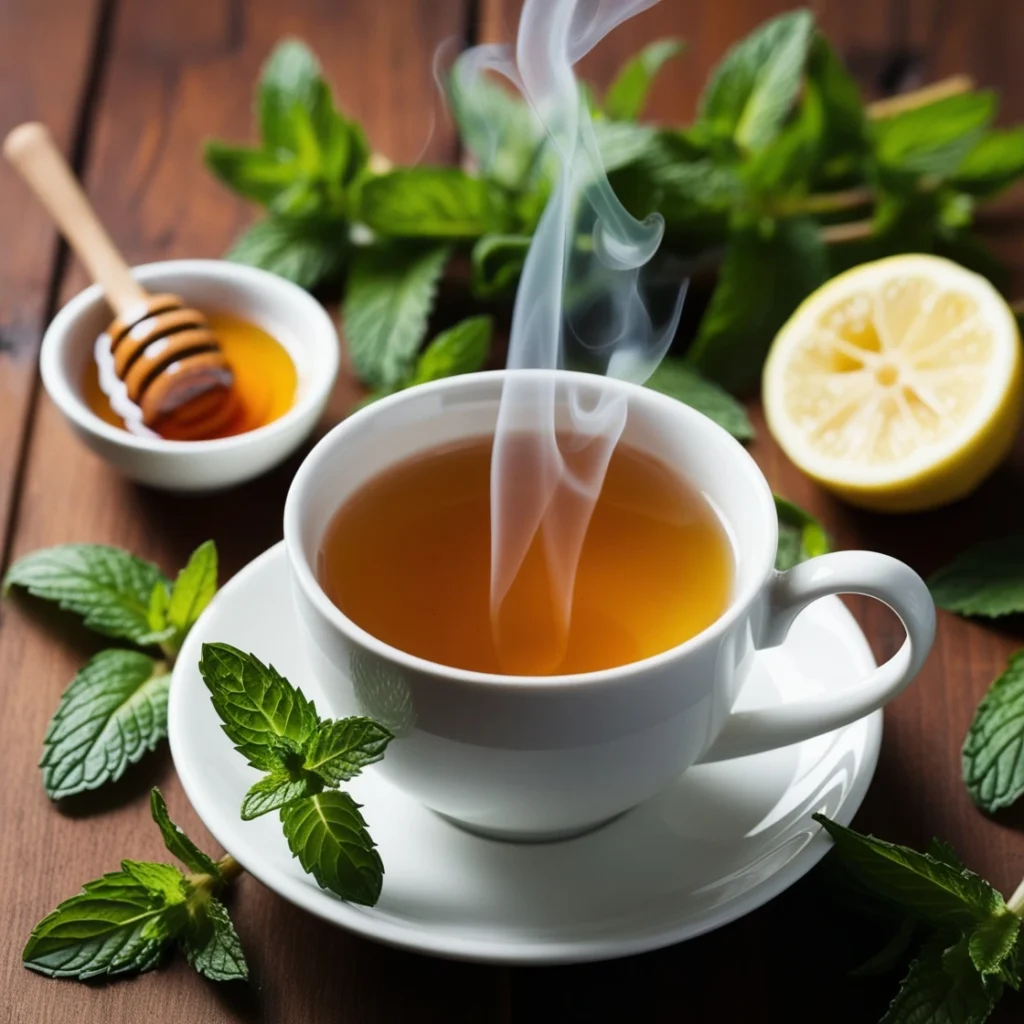
2. Stinging Nettle Tea: A Powerful Natural Antihistamine
Stinging nettle also known as nettle tea is among the best natural antihistamines as it contains compounds that are effective in reducing release of histamines in the body, which are responsible for triggering many of the symptoms of allergies, including sneezing, itching, and a runny nose.
By curbing the histamine response, nettle tea helps alleviate common symptoms of allergies, such as nasal congestion and nasal inflammation.
Nettle tea for allergies and sinus relief is especially effective for allergy relief due to its ability to regulate immune response. Nettle leaves have several bioactive compounds that boost the body’s natural defenses against allergies.
According to research human studies have shown nettle tea is effective in reducing nasal congestion and other symptoms related to allergic rhinitis.
Apart from its antihistamine action, nettle tea is rich in antioxidant properties that protect the body in mitigating the damage from oxidative stress.
This becomes crucial during periods of high allergic response; the body is often affected by several free radicals that can inflict further damage. Nettle tea provides a protective effect, enhancing the body’s ability to fight off allergens naturally.
Stinging nettle, one of the best herbal teas for allergies and sinus relief being a gentle but effective herbal remedy, you can have it regularly allergy season to relieve symptoms. Start with a low dose to ensure that you can avoid potential side effects such as digestive discomfort.
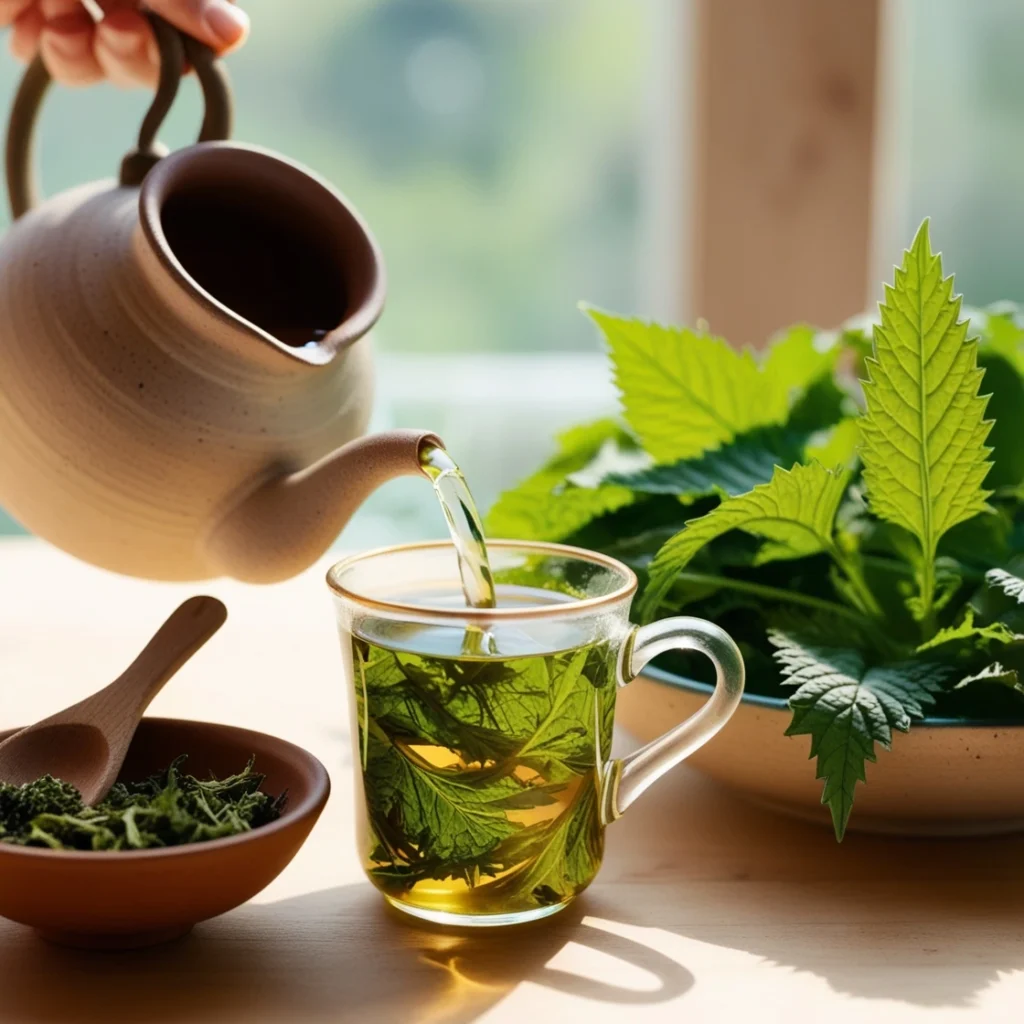
3. Licorice Root Tea: A Calming Tea for Sore Throat and Inflammatory Response
Licorice root is widely used in traditional medicine due to its soothing and healing properties. It tea can provide you relief from sore throat that results from constant irritation from nasal congestion or allergic reactions.
It has anti-inflammatory properties that regulate inflammatory response that occurs when the body reacts to allergens. Licorice root tea can help decrease swelling in the nasal passages, making it easier for you to breathe.
Besides its anti-inflammatory qualities licorice root tea has antimicrobial properties that help your body fight off infections which may aggravate symptoms during allergy season. It is also known to boost the body’s immune response, which is crucial when combating allergic reactions.
However, you must be aware of the potential side effects of licorice root, especially for individuals with high blood pressure or heart conditions. Always consult a healthcare provider before using this herbal tea for allergies and sinus relief regularly.
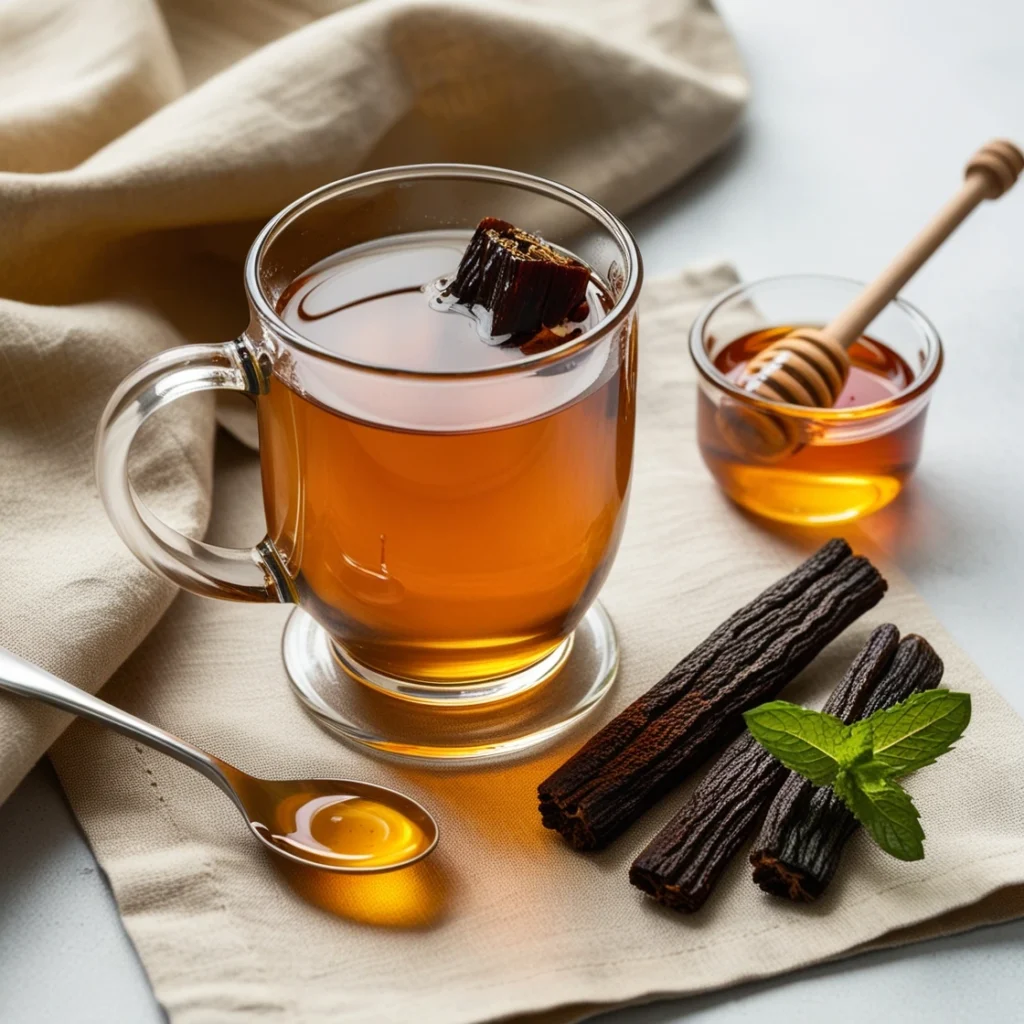
4. Ginger Tea: A Digestive Aid and Allergy Fighter
Ginger tea is an effective natural solution for dealing with allergic reactions. Known for its anti-inflammatory properties, it helps reduce swelling and irritation in the nasal passages.
This quality makes this herbal tea for allergies and sinus relief an effective herbal remedy for easing nasal congestion and nasal inflammation, especially during allergy season.
Ginger also improves digestion which can be especially helpful if you’re dealing with post-nasal drip or upset stomach caused by allergens.
Among the active ingredients in ginger, gingerols help regulate inflammatory response that often accompanies allergic rhinitis and other allergic reactions.
Ginger tea is also effective in boosting circulation and improving the movement of mucus out of the body, which is key for relieving congestion.
Research shows that ginger can ease symptoms of allergies, including a stuffy nose and runny nose. “The ginger extract is as good as loratadine in improving nasal symptoms and quality of life in AR (Allergic rhinitis) patients. However, ginger extract caused less side effects especially, drowsiness, fatigue, dizziness and constipation. Therefore, the ginger extract could be used as alternative treatment for patients with AR,” states a research paper.
Apart from its anti-inflammatory properties, ginger has antioxidant properties that protect the body from damage by free radicals which can exacerbate allergy symptoms. By adding ginger tea into your daily routine during allergy season you can get the desired relief from symptoms and natural relief.
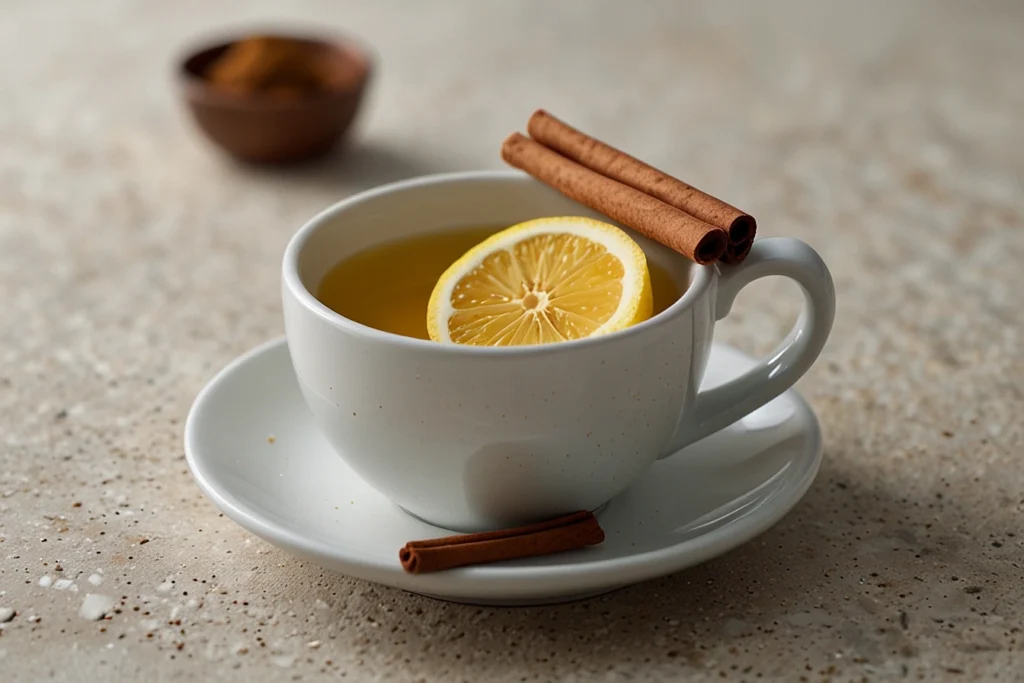
5. Chamomile Tea: A Relaxing Tea to Relieve Sinus Infection Symptoms
For those seeking relief from sinus infection symptoms, chamomile tea is an effective natural remedy. Its active ingredients like flavonoids, reduce inflammation and relax the muscles around the respiratory tract This make chamomile an excellent natural solution for soothing nasal inflammation and ensuring easier breathing during allergic rhinitis or pollen allergies.
Chamomile tea with its antimicrobial properties help your body’s immune response system fight off infections that may occur with sinus infections or other respiratory issues.
This herbal tea can provide relief from symptoms such as a stuffy nose, nasal congestion, and even a sore throat caused by allergic reactions.
Chamomile tea is a top herbal remedy for those facing sinus infection and nasal congestion due to seasonal allergies. According to research chamomile can provide relief from symptoms of both allergy symptoms and sinus infections.
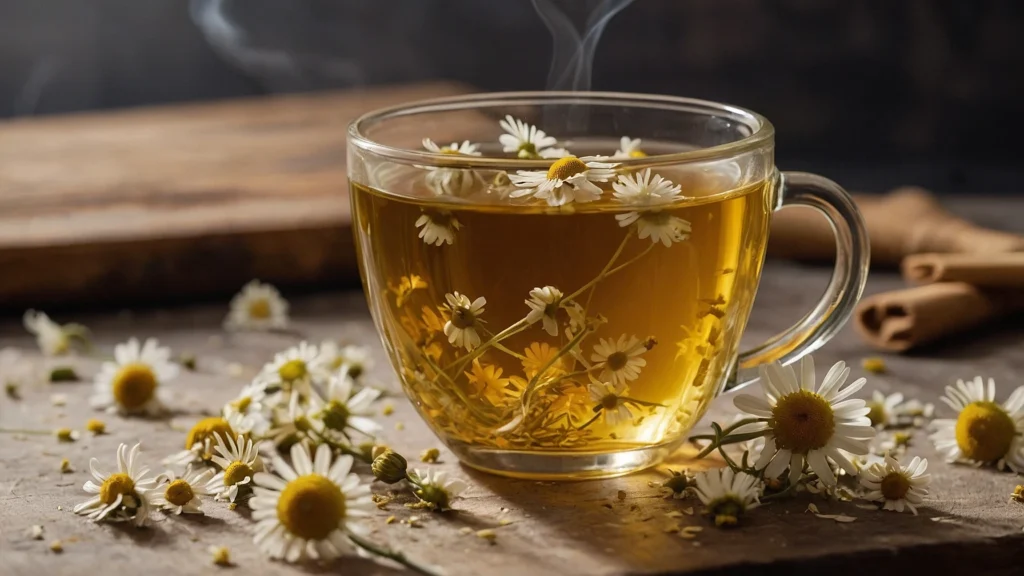
6. The Role of Peppermint Tea and Nettle Tea in Easing Allergy Symptoms
You can also combine peppermint tea and nettle tea to get comprehensive relief for nasal inflammation and other allergy symptoms. Both herbal teas have powerful anti-inflammatory properties that are effective in reducing inflammatory response triggered by allergens like pollen, dust, and pet dander.
If you take them together, these herbal teas act as natural antihistamines, preventing the release of histamines that cause symptoms like sneezing, itching, and congestion.
Nettle tea can support your body’s immune response which complements peppermint tea’s decongestant properties. This makes the combination an excellent natural solution for those seeking relief from allergy symptoms.
Peppermint tea decongests the nasal passages so that you get to breathe easily and nettle tea decreases the release of histamines, preventing the onset of sneezing and itching.
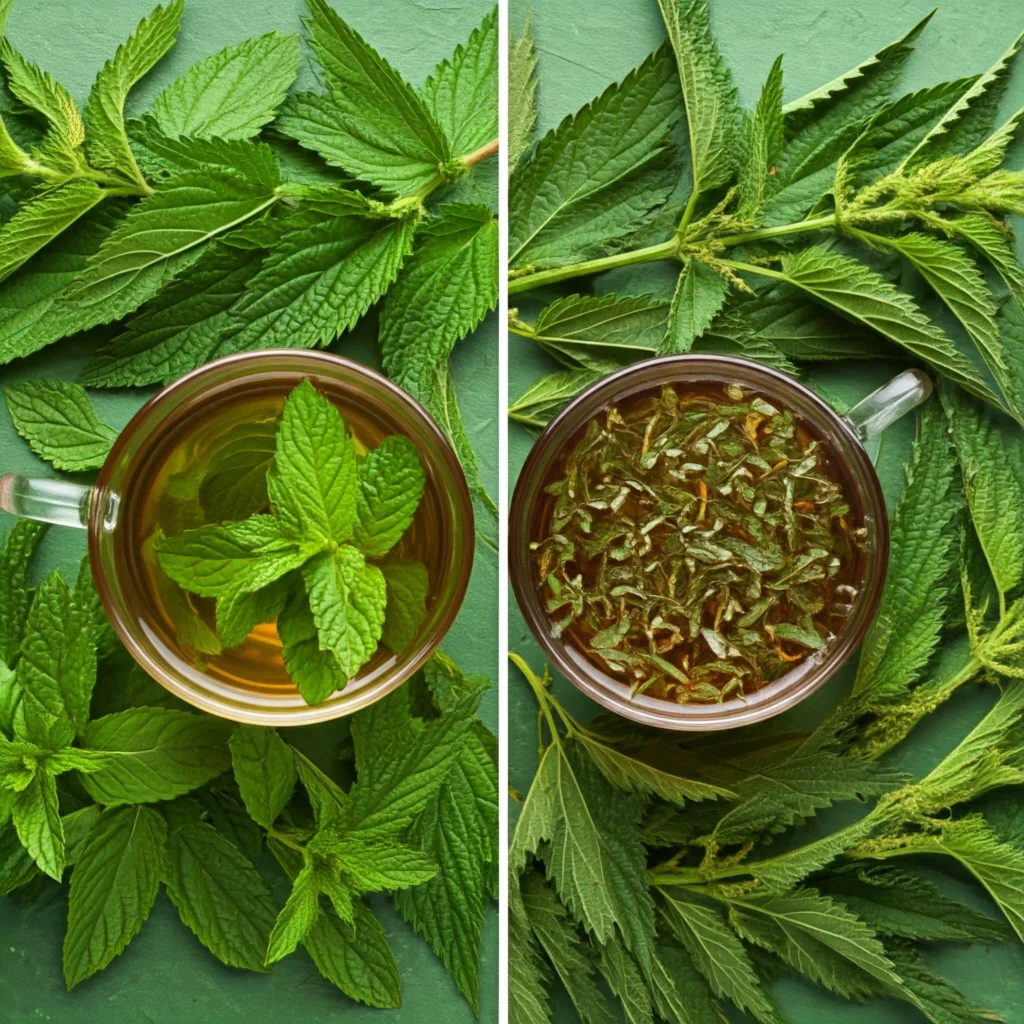
DIY Recipes : Best Herbal Teas for Allergy and Sinus Relief
1. Peppermint Tea for Nasal Congestion and Sore Throat
- Ingredients:
- 1.1 cup of water
- 2.1 tablespoon dried peppermint leaves (or 1 peppermint tea bag)
- 3.1 teaspoon honey (optional)
- 4.A slice of lemon (optional)
- Instructions:
- 1.Boil 1 cup of water in a small saucepan or kettle.
- 2.Add the dried peppermint leaves or tea bag to a mug.
- 3.Pour the hot water over the leaves and cover the mug to let it steep for 7-10 minutes.
- 4.Strain the tea (if using loose leaves) and add honey or lemon for additional soothing properties.
- 5.Sip slowly while inhaling the steam to help relieve nasal congestion and soothe a sore throat.
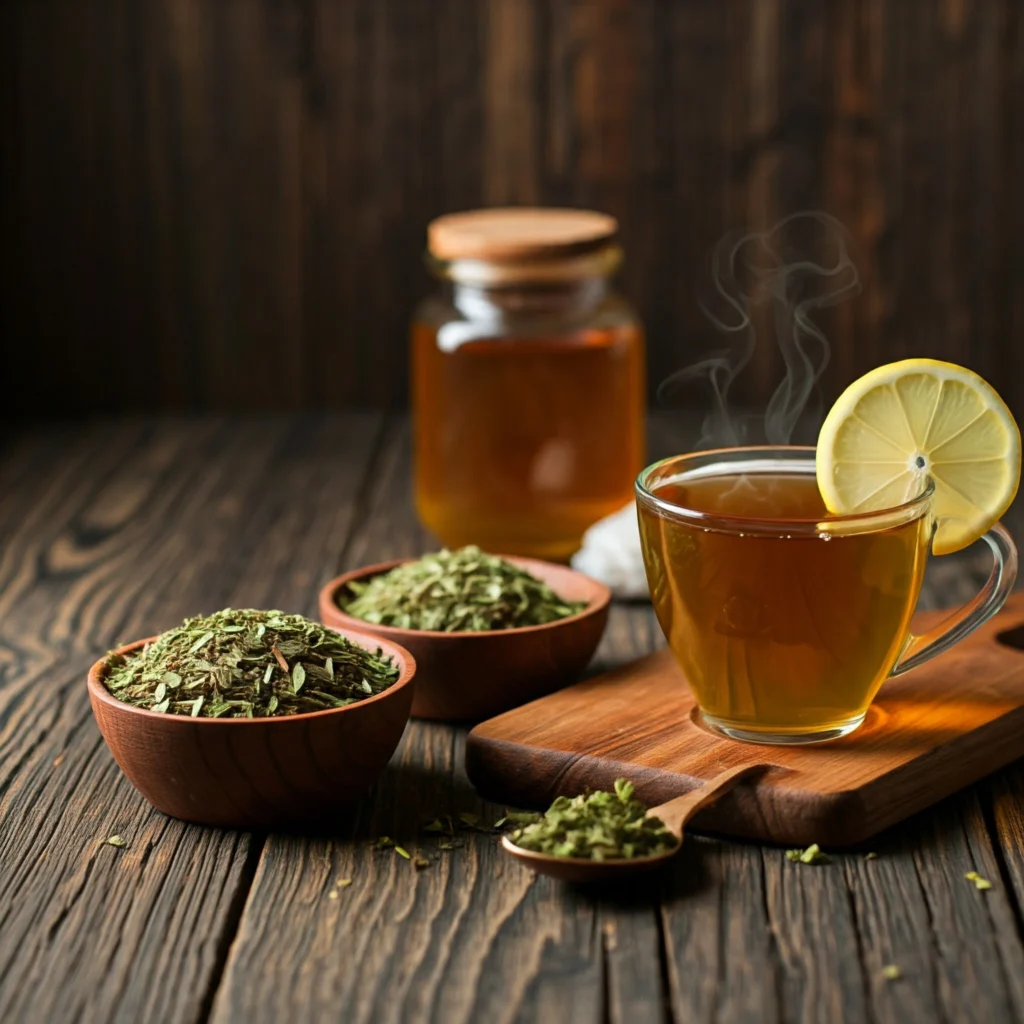
2. Nettle Tea for Allergic Rhinitis and Allergy Relief
- Ingredients:
- 1.1 cup of water
- 2.1 tablespoon dried nettle leaves
- 3.1 teaspoon honey or stevia (optional)
- Instructions:
- 1.Boil 1 cup of water.
- 2.Add dried nettle leaves to a teapot or infuser and pour the hot water over them.
- 3.Cover and let the tea steep for 10-15 minutes to extract the active ingredients from the nettle leaves.
- 4.Strain the tea and sweeten with honey if desired.
- 5.Drink 1-2 cups daily during allergy season to help alleviate symptoms of allergic rhinitis and reduce the release of histamines.
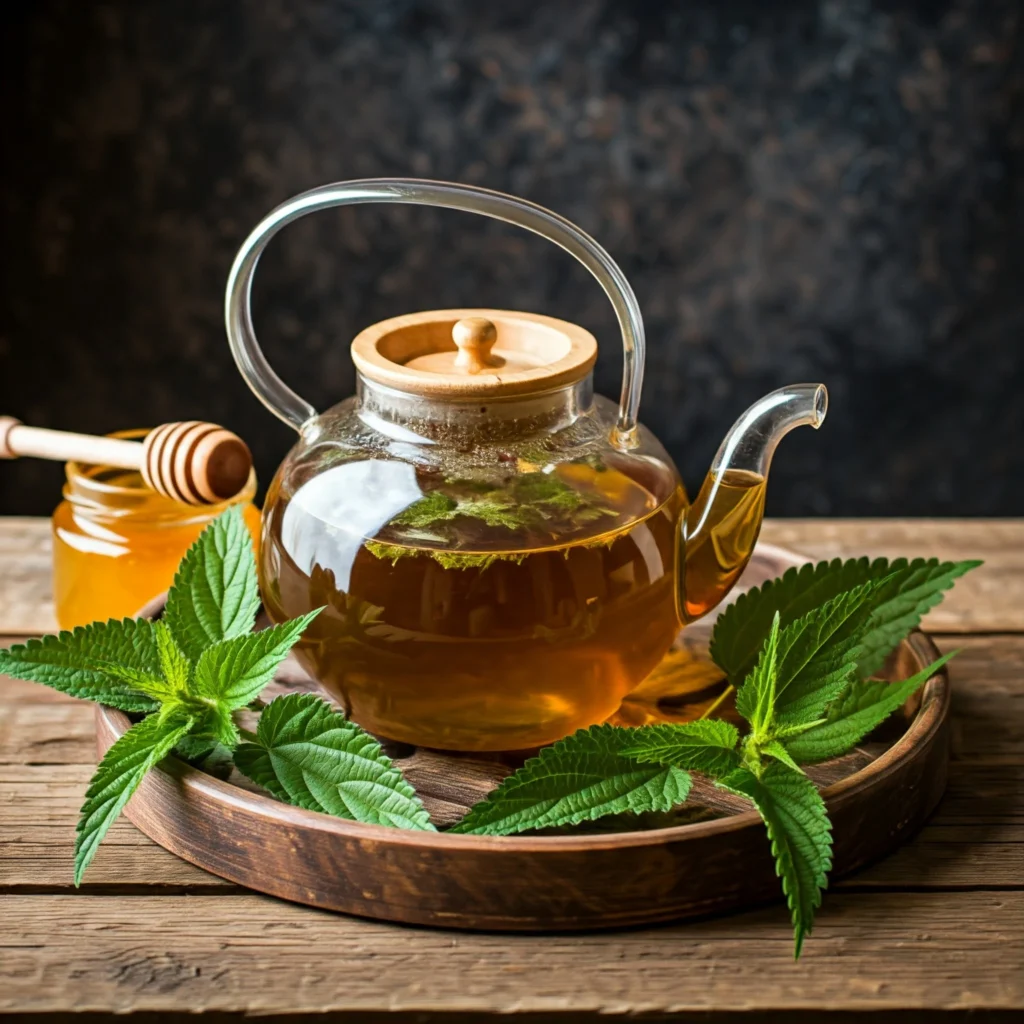
3. Ginger Tea for Anti-Inflammatory and Antioxidant Benefits
Ingredients:
- 1.1 cup of water
- 2.1-inch piece of fresh ginger root, sliced thinly
- 3.1 teaspoon honey (optional)
- 4.A slice of lemon or a cinnamon stick (optional)
Instructions:
- 1.Bring 1 cup of water to a boil.
- 2.Add the sliced ginger root and reduce the heat to let it simmer for 5-7 minutes.
- 3.Remove from heat, strain the tea, and pour it into a cup.
- 4.Add honey or lemon for extra flavor and antioxidant properties.
- 5.Enjoy the tea warm to help with inflammatory response and alleviate symptoms of pollen allergies.
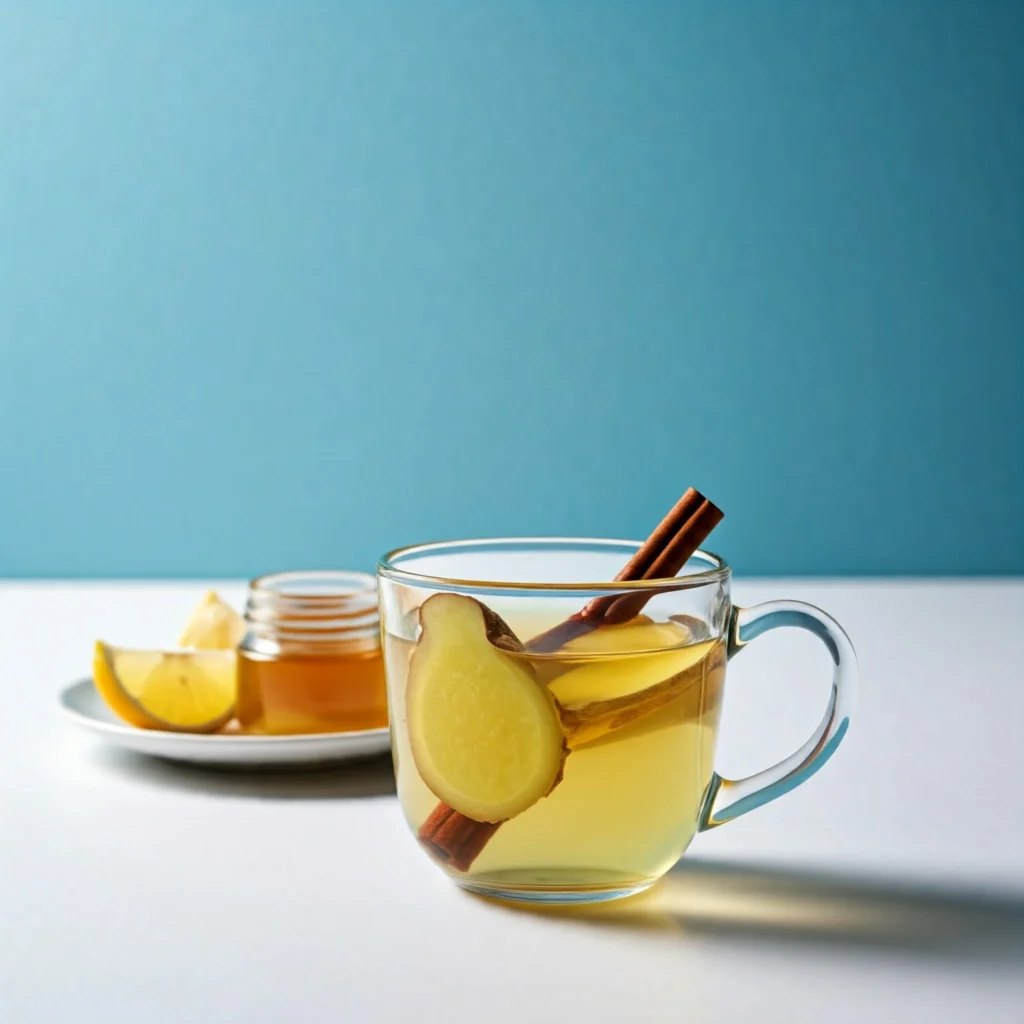
4. Licorice Root Tea for Sore Throat and Allergy Symptoms
- Ingredients:
- 1.1 cup of water
- 2.1 teaspoon dried licorice root
- 3.1 teaspoon honey (optional)
- Instructions:
- 1.Heat 1 cup of water until it begins to boil.
- 2.Add the dried licorice root to the water and simmer for 5-10 minutes.
- 3.Strain the tea and pour it into a cup.
- 4. Add honey for sweetness and additional soothing benefits.
- 5.Sip this tea slowly to relieve sore throat, reduce nasal inflammation, and support the immune response.
Note: Licorice root tea should be consumed in moderation, as excessive use can cause potential side effects like increased blood pressure.
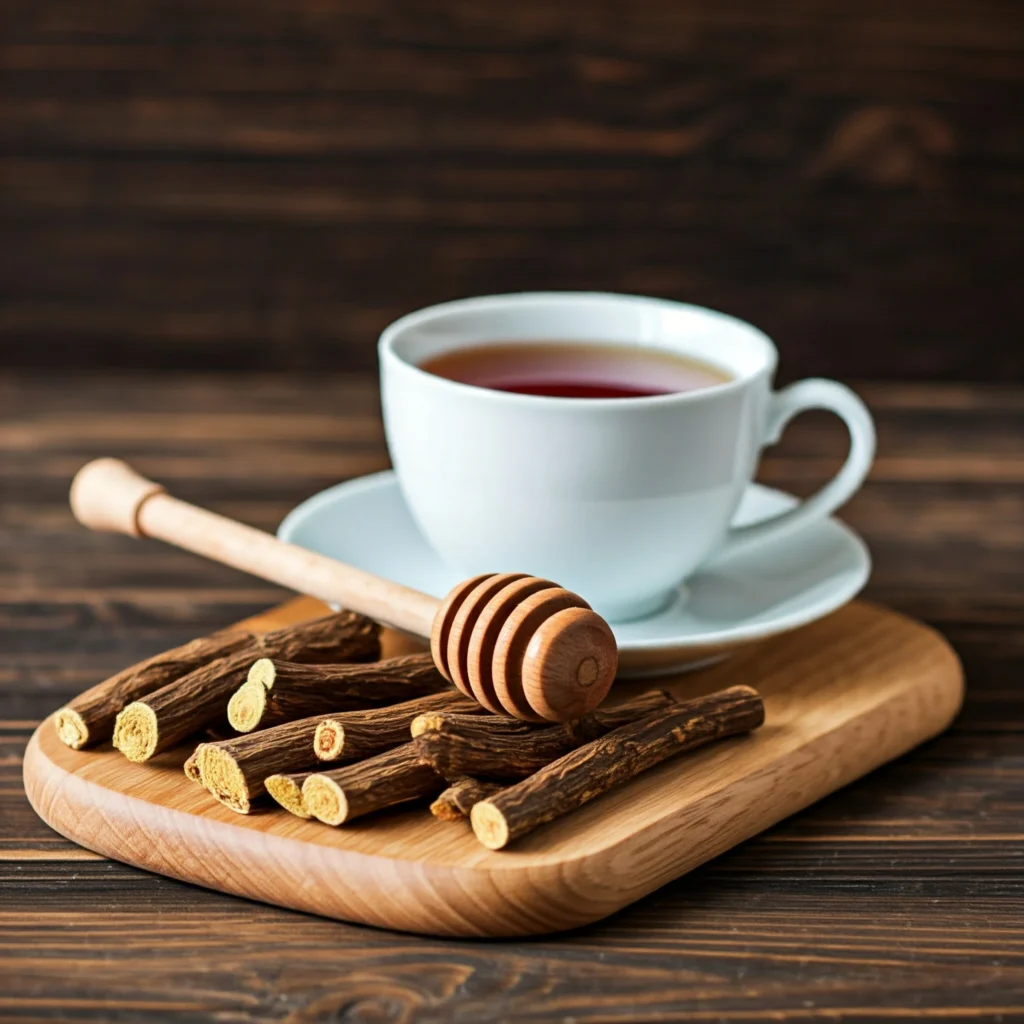
5. Stinging Nettle and Peppermint Blend for Natural Antihistamines
- Ingredients:
- 1.1 cup of water
- 2.1 tablespoon dried nettle leaves
- 3.1 teaspoon dried peppermint leaves
- 4.1 teaspoon honey or a slice of lemon (optional)
- Instructions:
- 1.Boil 1 cup of water.
- 4.Combine nettle leaves and peppermint leaves in a teapot or infuser.
- 5.Pour the boiling water over the herbs and cover to steep for 10-15 minutes.
- 6.Strain the tea and add honey or lemon for extra flavor.
- 7.Drink 1-2 cups daily during allergy season to reduce nasal congestion, soothe nasal passages, and prevent the release of histamines.
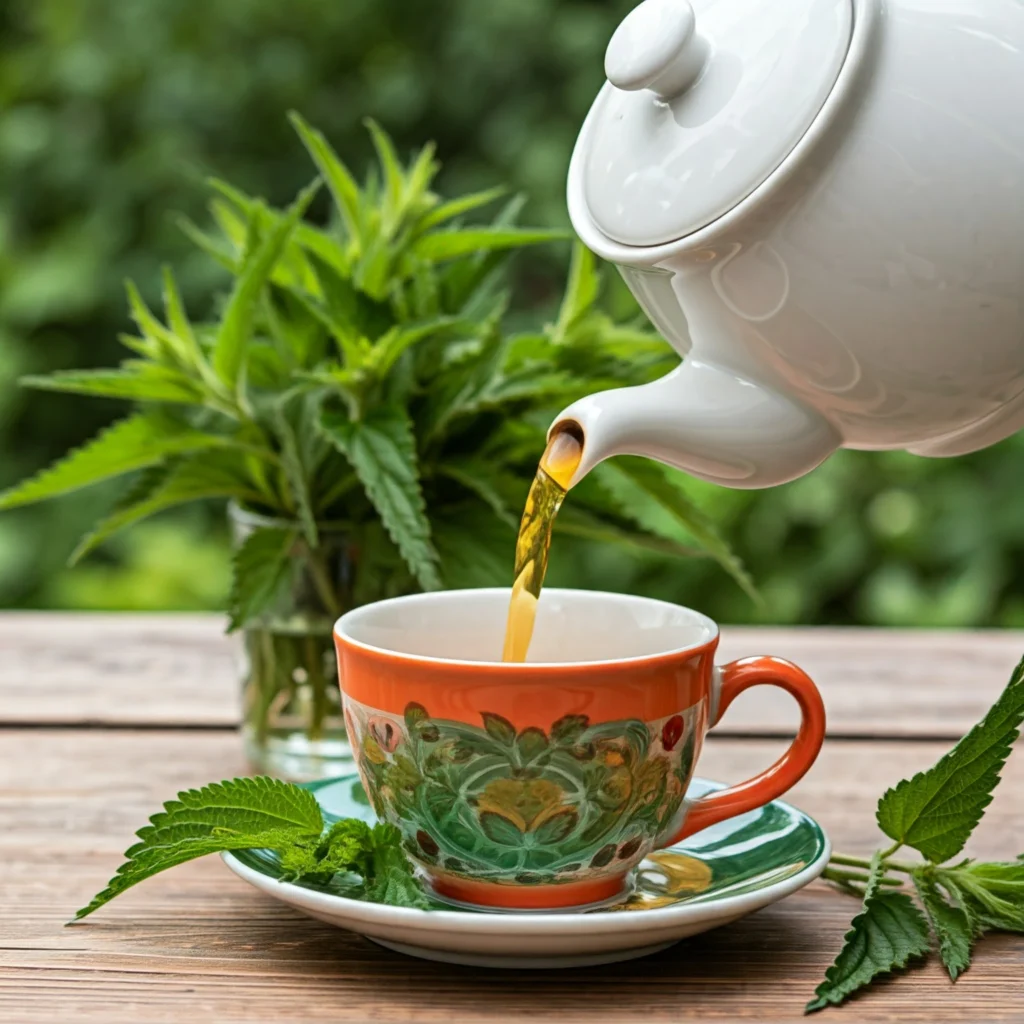
6. Chamomile and Ginger Tea for Sinus Infections and Allergy Relief
- Ingredients:
- 1.1 cup of water
- 2.1 teaspoon dried chamomile flowers (or 1 chamomile tea bag)
- 3.1-inch piece of fresh ginger root, sliced
- 4.1 teaspoon honey (optional)
- Instructions:
- 1.Boil 1 cup of water.
- 2.Add chamomile flowers and sliced ginger to a teapot or mug.
- 3.Pour the hot water over the mixture and cover it to steep for 10 minutes.
- 4.Strain the tea, sweeten with honey if desired, and enjoy.
- 5.This tea helps reduce sinus infections, supports the immune response, and provides relief from a stuffy nose.
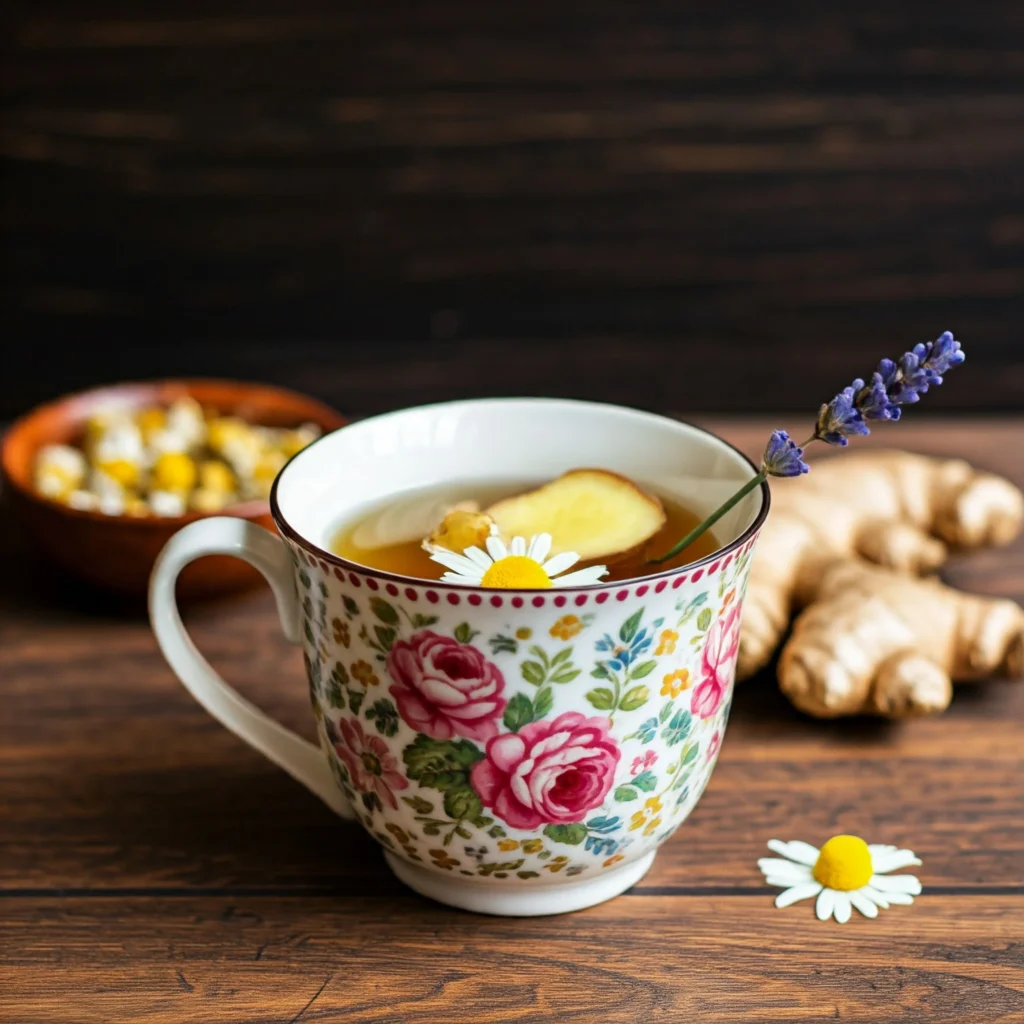
7. Lemon Balm and Peppermint Tea for Nasal Congestion Relief
- Ingredients:
- 1.1 cup of water
- 2.1 teaspoon dried lemon balm leaves
- 3.1 teaspoon dried peppermint leaves
- 4.A slice of fresh lemon (optional)
- Instructions:
- 1.Bring 1 cup of water to a boil.
- 2.Combine lemon balm and peppermint leaves in a mug or teapot.
- 3.Pour the hot water over the herbs and cover to steep for 7-10 minutes.
- 4.Strain the tea and serve with a slice of lemon for a refreshing twist.
- 5.This blend works as a natural decongestant, easing nasal congestion and promoting relaxation.
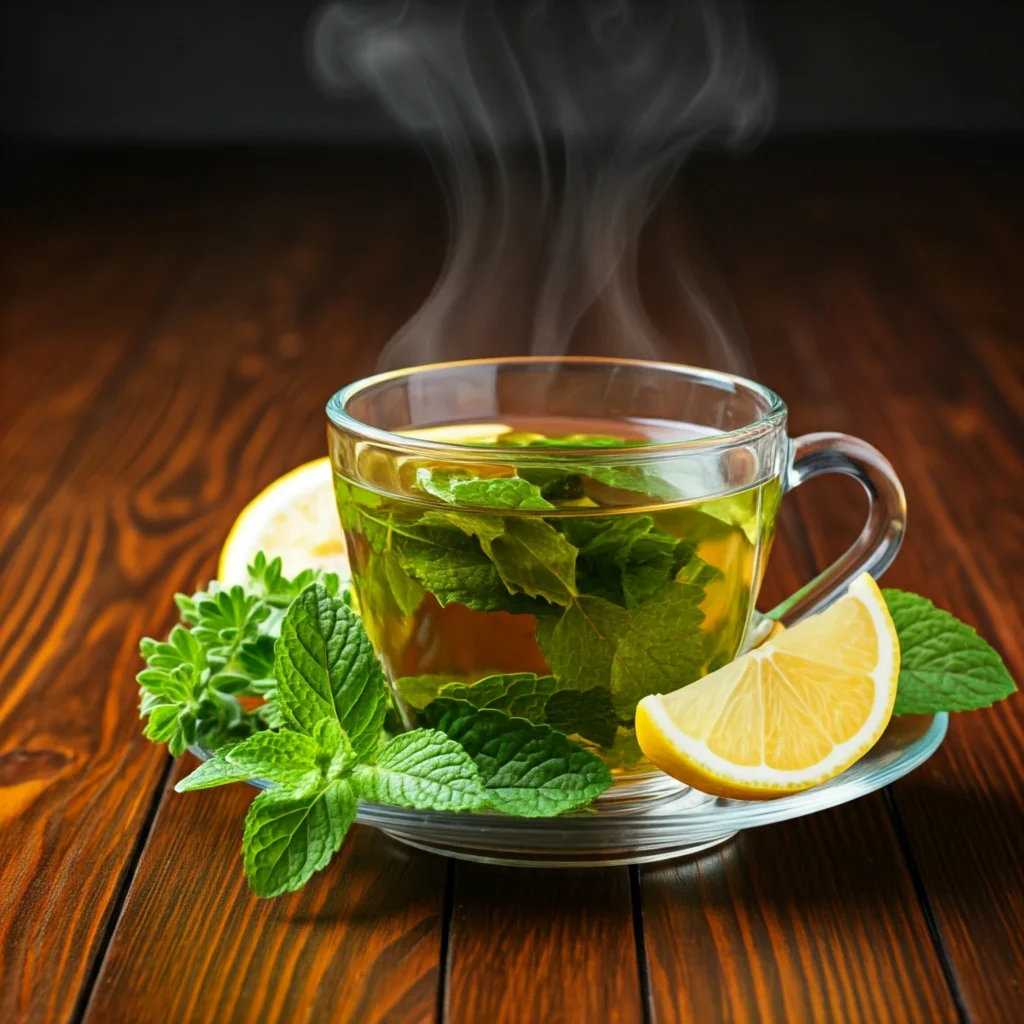
8. Turmeric Ginger Tea for Inflammatory Response
- Ingredients:
- 1.1 cup of water
- 2.1 teaspoon turmeric powder (or fresh turmeric root, grated)
- 3.1-inch piece of fresh ginger root, sliced
- 4.A pinch of black pepper (to enhance turmeric absorption)
- 5.1 teaspoon honey (optional)
- Instructions:
- 1.Boil 1 cup of water and add turmeric, ginger, and black pepper.
- 2.Simmer for 5-7 minutes to extract the herbs’ benefits.
- 3.Strain the tea and pour it into a cup.
- 4.Add honey for sweetness if desired.
- 5.This tea is ideal for reducing the inflammatory response and easing symptoms of pollen allergies.
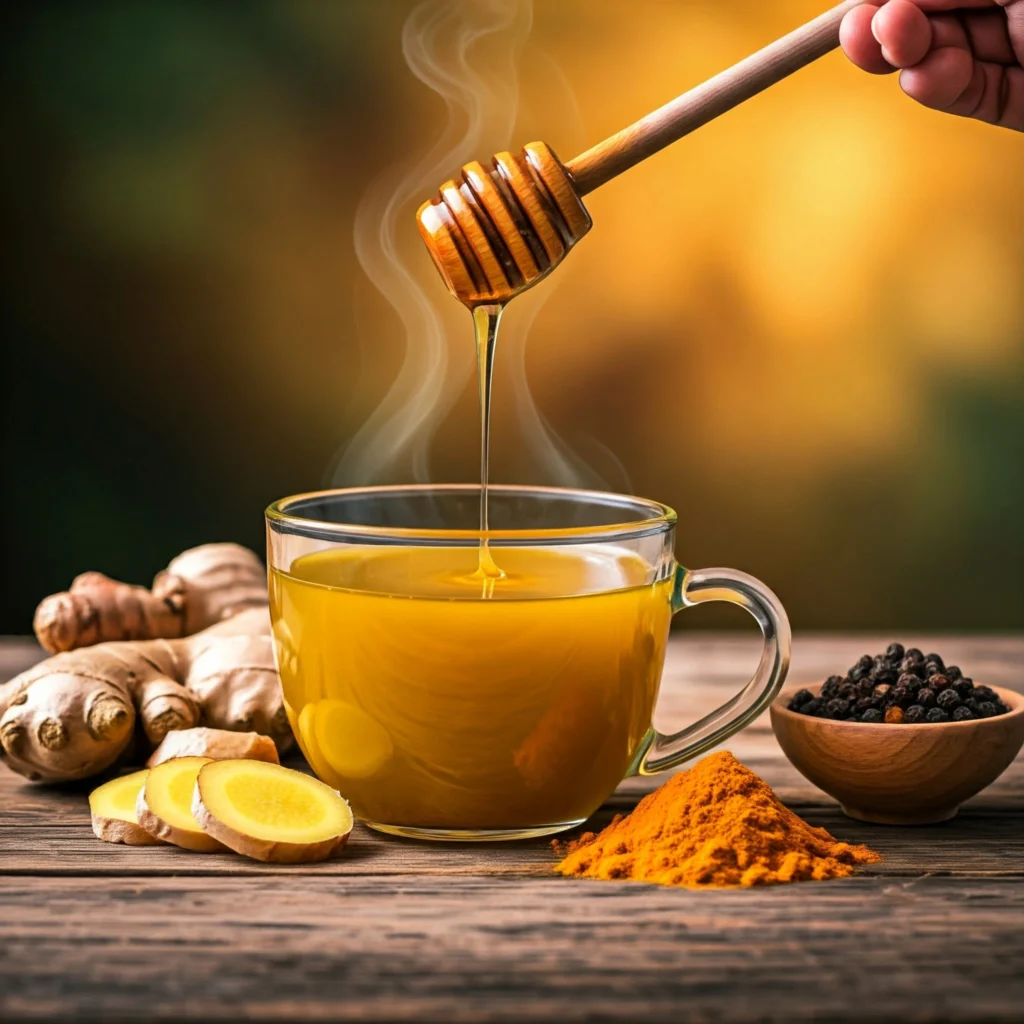
Conclusion
Herbal teas for allergies and sinus relief are an excellent natural remedy for getting relief from allergy symptoms and sinus infections. Whether its peppermint tea’s decongestant action to nettle tea’s antihistamine properties, each tea offers a unique set of benefits for those struggling with allergy season.
If you are suffering from nasal congestion, a runny nose, or a sore throat, incorporating the best herbal teas for allergies into your routine can provide natural, safe, and effective relief.
However, it is recommended that you consult a healthcare provider especially if you have any pre-existing conditions or concerns about the side effects of herbal teas. By making an informed choice on these herbal remedies you can tackle your allergy symptoms head-on and breathe easy all season long. So which is your pick for the herbal teas for allergies and sinus relief? Tell us in the comments section.
FAQ on Herbal Teas for Allergies and Sinus Relief
1. What is the best herbal tea for sinus and allergy relief?
The best herbal teas for sinus and allergy relief include peppermint tea, nettle tea, licorice root tea, and ginger tea. These teas are known for their anti-inflammatory properties, ability to soothe nasal passages, and support the body’s immune response.
Peppermint tea, in particular, is a powerful natural decongestant, while nettle tea acts as a natural antihistamine, reducing nasal congestion and the release of histamines during allergy season.
Incorporating these teas into your daily routine can provide relief from common allergic reactions like a stuffy nose or sore throat.
2. How do herbal teas help with allergic reactions?
Herbal teas like peppermint tea and nettle tea help alleviate allergic reactions by reducing nasal inflammation and preventing the release of histamines, which are responsible for many allergy symptoms.
These natural antihistamines work to relieve symptoms such as a runny nose, nasal congestion, and sneezing. In addition, herbal teas like licorice root tea and ginger tea have anti-inflammatory properties that help calm the inflammatory response in the body, offering a natural remedy for allergic rhinitis and other allergy symptoms.
3. Can peppermint tea relieve nasal congestion and a sore throat?
Yes, peppermint tea is an effective natural remedy for nasal congestion and sore throat. The menthol in peppermint tea acts as a natural decongestant, helping to open the nasal passages and reduce nasal inflammation.
Additionally, the antimicrobial properties of peppermint help to soothe the throat, reducing discomfort caused by a sore throat. It’s especially helpful during allergy season, when sinus infections and post-nasal drip often occur.
4. Is nettle tea good for allergic rhinitis?
Yes, nettle tea is highly beneficial for allergic rhinitis. Nettle leaves contain compounds that inhibit the release of histamines, which are responsible for many symptoms of allergies, such as sneezing, nasal congestion, and runny nose.
Nettle tea serves as a natural antihistamine, providing relief from nasal inflammation and allergy symptoms without the potential side effects of over-the-counter antihistamines. It’s one of the most popular herbal remedies for seasonal allergies.
5. Can ginger tea reduce allergy symptoms?
Yes, ginger tea is an excellent option for reducing allergy symptoms. Ginger is known for its anti-inflammatory properties, which help reduce nasal congestion and ease the inflammatory response triggered by allergens.
Ginger also promotes circulation, helping to clear mucus from the respiratory system, which can alleviate sinus congestion and runny nose. Additionally, ginger tea has antioxidant properties that support the body in fighting off the oxidative stress caused by allergens.
6. How does licorice root tea help with allergies?
Licorice root tea is known for its anti-inflammatory properties, which help to reduce swelling in the nasal passages and relieve the discomfort caused by nasal congestion and sore throat during allergy season.
Licorice root also has antimicrobial properties, which help protect the body from infections that may worsen symptoms of sinus infections or allergic reactions.
However, it’s important to note that licorice root can have potential side effects, particularly for those with high blood pressure or heart conditions, so it’s advisable to consult a healthcare provider before using it regularly.
7. Can herbal teas like peppermint or nettle help with sinus infections?
Yes, herbal teas like peppermint tea and nettle tea can help relieve symptoms of sinus infections.
Peppermint tea helps clear nasal passages and reduce nasal inflammation, while nettle tea acts as a natural antihistamine, preventing the release of histamines that exacerbate symptoms of sinus infections and allergic reactions.
These teas, along with their anti-inflammatory properties, support the immune system, helping to ease the congestion, stuffy nose, and discomfort associated with sinus infections.
8. Are there any herbal teas that help with a sore throat caused by allergies?
Yes, there are several herbal teas that can soothe a sore throat caused by allergic reactions and post-nasal drip. Licorice root tea and chamomile tea are both known for their ability to reduce throat irritation and inflammation.
Chamomile tea is especially gentle and relaxing, while licorice root tea helps reduce swelling and has antimicrobial properties to fight off infections that might worsen the sore throat.
Additionally, peppermint tea can provide cooling relief for a sore throat due to its anti-inflammatory properties.
9. What are the benefits of using herbal remedies for allergies over over-the-counter medications?
Herbal remedies for allergies, such as peppermint tea, nettle tea, and ginger tea, offer a natural alternative to over-the-counter medications.
Unlike pharmaceutical antihistamines, which can cause potential side effects like drowsiness, herbal teas are generally gentler on the body and free from artificial chemicals. Herbal remedies also work to address the root causes of allergic reactions, such as nasal inflammation, by supporting the body’s immune response and providing anti-inflammatory properties.
Many herbal teas, like nettle tea, offer long-term relief without the risk of dependency or harmful side effects.
10. Can I drink these herbal teas daily during allergy season?
Yes, herbal teas such as peppermint tea, nettle tea, and ginger tea can be safely consumed daily during allergy season to help manage symptoms of allergic rhinitis, nasal congestion, and runny nose.
These teas support the body’s immune response, reduce nasal inflammation, and act as natural antihistamines.
However, it’s essential to monitor your body’s response, especially if you have any underlying conditions or are pregnant. If you experience any adverse reactions, such as stomach upset or an allergic response, discontinue use and consult your healthcare provider.
11. How do herbal teas help reduce the release of histamines during an allergic response?
Herbal teas for allergies and sinus relief like nettle tea and ginger tea help reduce the release of histamines by modulating the body’s immune response.
Nettle tea contains active compounds that inhibit the enzymes responsible for histamine production, acting as a natural antihistamine.
Ginger tea works by reducing overall inflammation, which in turn prevents the body from overreacting to allergens and releasing excess histamines. This can provide relief from symptoms like sneezing, nasal congestion, and itching.
12. How can I combine herbal teas to maximize allergy relief?
Combining herbal teas for allergies and sinus relief like peppermint tea, nettle tea, and ginger tea can offer a holistic approach to allergy relief. Peppermint
Peppermint tea opens up the nasal passages and soothes the respiratory tract, while nettle tea acts as a natural antihistamine, preventing the release of histamines.
Ginger tea can reduce inflammation and promote mucus clearance. By combining these teas, you target multiple aspects of the allergic response—from nasal congestion to inflammatory response, helping to ease a wide range of allergy symptoms during allergy season.

